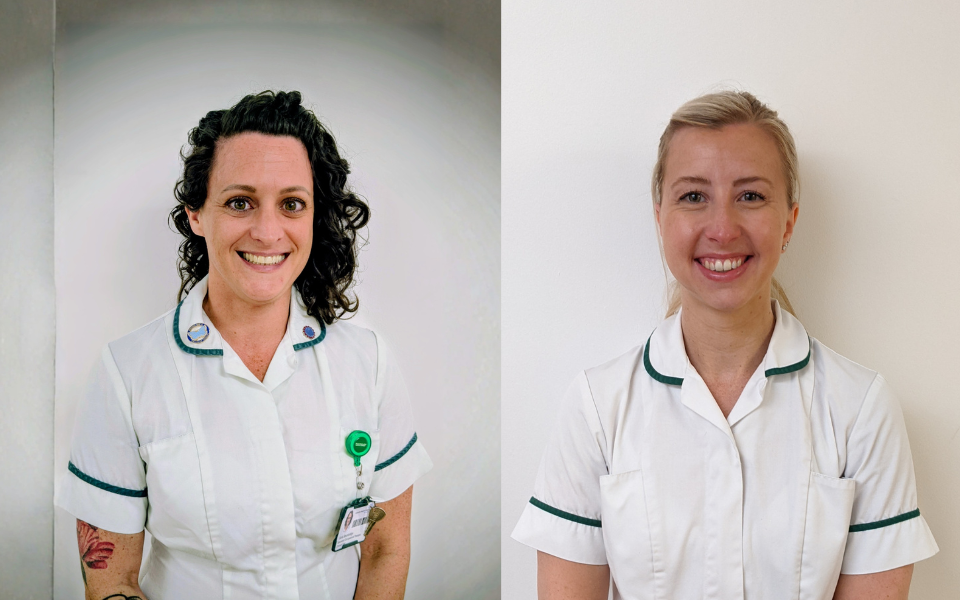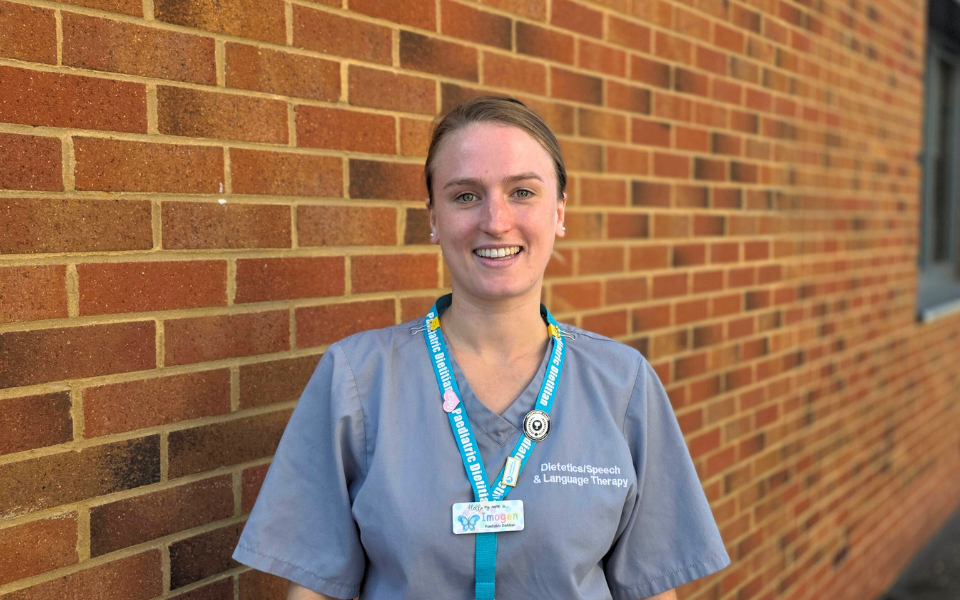
Allied health | Career Development and Education
Guiding the Next Generation: Imogen’s Journey from Preceptee to Preceptor
Transitioning from a student to a registered healthcare professional can be both exciting and daunting. That's why we're proud to offer a comprehensive preceptorship programme designed to support staff during this important stage.
At UHS, newly qualified staff are supported by our dedicated preceptorship team and assigned preceptor to help develop their confidence, clinical judgement, and autonomy in real-life practice.
We spoke to Imogen, a Paediatric Dietitian, and recent preceptee who has now stepped into the role of preceptor. After completing her preceptorship last year, she shares how the preceptorship programme has helped her feel empowered and confident and ready to support the next generation of healthcare professionals.
Can you tell us a little about your role and what inspired you to become a Dietitian?
I’m a paediatric dietitian, working within oncology and neurology. My day-to-day includes supporting patients and their families with their nutrition whilst they undergo treatment and rehabilitation for their condition. I was inspired to become a dietitian when, during my mid-twenties, I was made redundant from a job I wasn’t passionate about. It gave me the opportunity to go back to college and finish my A levels, then go on to university to study to become a dietitian. I’ve always been interested in nutrition, but I really wanted to combine it with something clinical. Dietetics ticked all the boxes!
What was your experience like as a newly qualified professional starting at UHS?
I was lucky enough to go straight into a paediatric role, which is where I knew I wanted to work. This did, however mean I was worried about learning a specialised area with no previous experience of working within the NHS. My team couldn’t have been more supportive. I had plenty of opportunities to ask questions and sit down to do my own research/ background reading. I had thorough, structured training straight from the start which really boosted my confidence, and I felt that no question was a silly question.
What were your initial thoughts and expectations when starting your preceptorship year?
Honestly, I had no idea what a preceptorship was! It’s not something I’ve had the opportunity to be a part of before and was still a new concept within my immediate team as well. I expected that it would just be an introduction to working at UHS, which it was in part, but it was also much more than that. My initial thoughts were that it might just be a compulsory programme that all staff must do. I was pleasantly surprised.
How did the preceptorship programme support you during your transition into professional practice?
In addition to providing ongoing guidance and support about life at UHS, the preceptorship programme provided me with a safe space to reflect on myself and voice where I needed guidance and where I was finding things tricky. It’s an opportunity to take a step back from clinical work and look at the bigger picture of how I’m progressing. It gave me a group of colleagues from other professions who were all in the same boat as me and by the end of the preceptorship year, I felt really connected to them.
What aspects of the programme helped you grow in confidence and develop as an autonomous professional?
Having regular check ins with both the preceptorship group and my preceptor meant that any issues I had with my confidence and ability were picked up quickly and I was swiftly supported. This means that I now have a good base of confidence to fall back on in times where I need it. I also enjoyed the talks from other members of staffs, learning about what their roles are and ways they have overcome common challenges they’ve encountered within their roles and how we could apply the same strategies.
Can you share a standout moment or key learning experience from your preceptorship year?
We had a question panel with a few of the senior nurses and members of staff from around the hospital where we could ask any question we wanted. Initially I think we were all a little shy to ask questions however this quickly dissipated as people warmed up and became a valuable moment. It was interesting to learn what other peers were worrying about and how the panel had answers for everyone. It put us all at ease and I think made us more excited for our careers at UHS.
How did your preceptor support you, and what impact did that relationship have on your journey?
I lucked out as my preceptor tripled as my supervisor and my colleague in oncology. I feel incredibly lucky to have her and to have the monthly meetings with her that we still have. This makes me feel that although I’ve completed my preceptorship, I’m always supported and can draw on her knowledge and experience when I need to. I find that you do bond very quickly with your preceptor as it is them you can come to when you’re struggling emotionally, not just professionally which I think adds a whole new level of feeling comfortable in a working environment.
What made you want to become a preceptor yourself?
The sense of confidence I now feel directly due to my preceptorship is why I wanted to support preceptees myself. I know how daunting things can be as a first starter and so I’d like to do anything I can to make this transition easier for someone. It also gives me the opportunity to develop my own skills in mentoring and leadership which can be transferred to all areas of working and personal life.
How has your own experience shaped the way you now support newly qualified staff?
I feel that I’m able to give a lot more reassurance to them and feel more capable of addressing their concerns having been in their position recently. I can also convey the worth of the preceptorship and how these sessions together are so beneficial to not only their professional but mostly personal development.
In your view, why is preceptorship so important for newly qualified healthcare professionals?
As well as helping to build clinical confidence and consolidating skills, the preceptorship can help newly qualified professionals to integrate into their teams and adapt to workplace culture. Each hospital is different and it’s so important to feel comfortable and confident within a clinical environment. In addition, transitioning from a student to a professional can feel incredibly daunting. The preceptorship offers a gentle pathway where you’re recognised as the professional you are but its also recognised that you’re still developing your confidence, competence, and clinical judgement in real-world practice.
What advice would you give to someone starting their preceptorship?
Firstly, congratulations on landing your first professional role. Secondly, try to keep up with your preceptor meetings, even if its just 15 minutes in the feed store or a quiet alcove in the corridor, take the time to speak to your preceptee about how things are going and how you’re feeling. It’s so important, not only for your own wellbeing but so you can do the best you can with your patients. Don’t be afraid to voice your concerns, nothing changes if nothing changes. Remember that you’re a vital member of your team and very valued!
Imogen's story is a brilliant example of how the UHS preceptorship programme does more than just support clinical learning, it nurtures confidences, professional identity, and a deep sense of belonging. Through structured training, reflective practice, and cross disciplinary connection, our preceptorship programme provides newly qualified staff with the tools they need to grow, both personally and professionally.
If you're inspired by Imogen's story, explore and discover how about UHS can support your career journey by clicking here.
Related Blogs
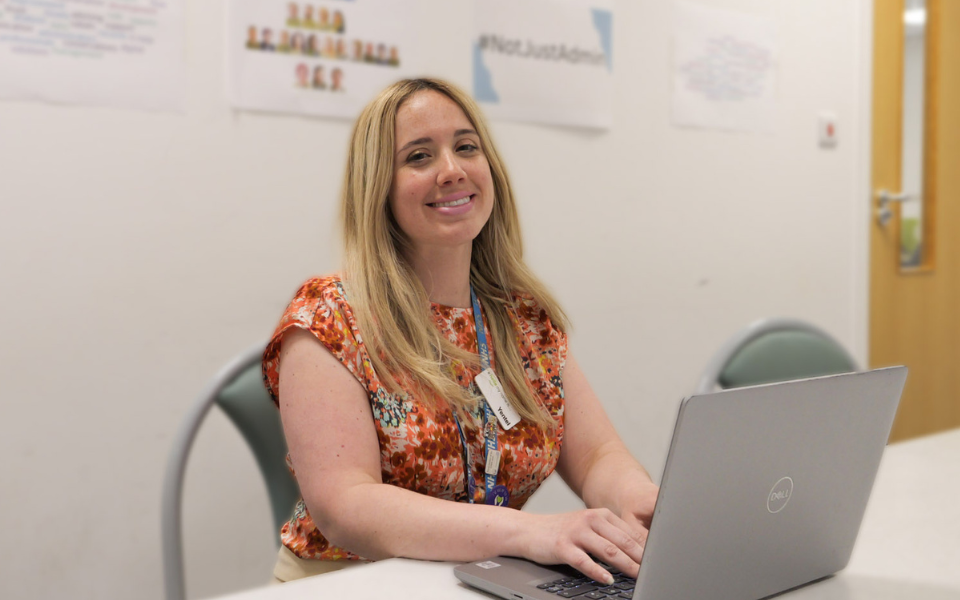
From Sports Coach to NHS Innovator: How Yentel Found Purpose at UHS
More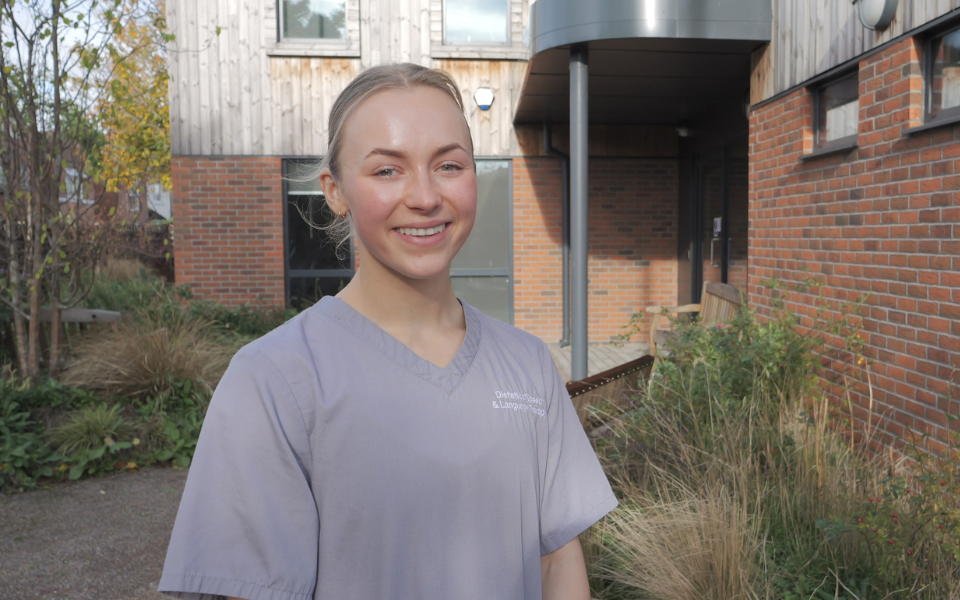
Supporting Newly Qualified Professionals: The Impact of Preceptorship at UHS – Goda’s Story
More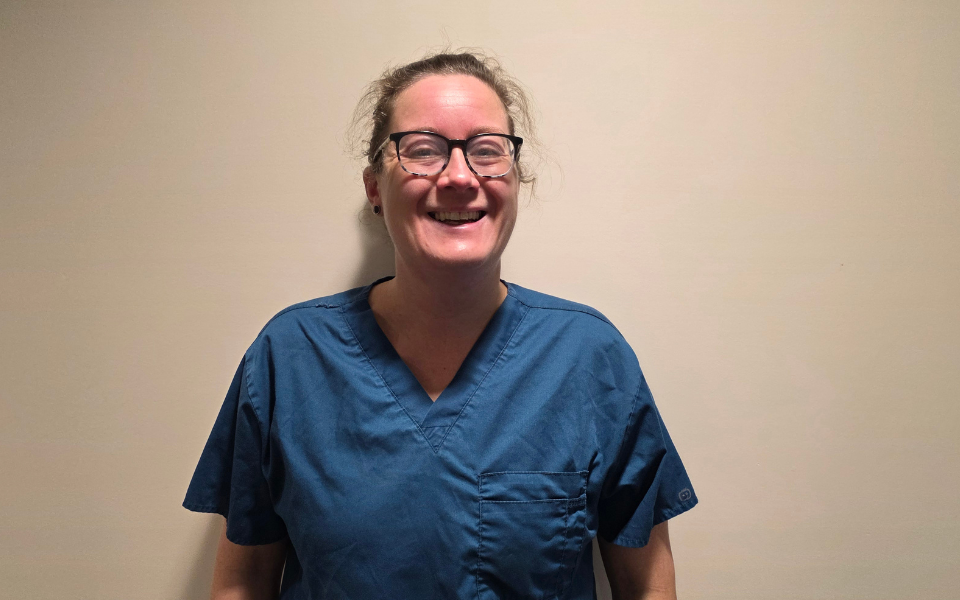
From Childhood Dream to NHS Specialist: Lizzi’s Journey in Pharmacy
More